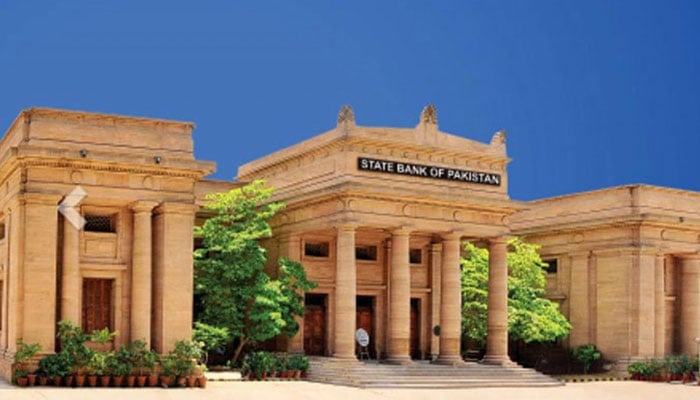Housing finance for NRPs to boost Islamic banking footprint
KARACHI: Islamic housing finance is expanding at a fast pace and the new scheme that facilitates overseas Pakistanis to buy a house for themselves or their families in Pakistan provides Islamic banks an opportunity to increase their footprint in the country’s mortgage market, bankers said on Friday.
“Islamic home finance has more than 55 percent of the overall housing finance market in Pakistan, and monthly mortgage finance acquisition has increased from Rs1 billion to Rs4 billion in one year,” Muhammad Jehanzeb Saeed, head, home, and business finance products at Dubai Islamic Bank told a webinar on “Roshan Apna Ghar through Islamic Finance” hosted by IBA Center for Excellence in Islamic Finance (CEIF).
The total housing finance in Pakistan is Rs110 billion, and Shariah-complaint financing is around Rs65 billion, Saeed said.
“Each NRP (non-resident Pakistani) has a dream to own a home in Pakistan. We expect the Roshan Apna Ghar scheme to help boost Islamic mortgages in the future. The overseas Pakistanis have more savings and liquidity so they are likely to avail this facility at a higher level than expected.”
He said activity in the construction sector impacts multiple industries in the country and increases employment.
The State Bank of Pakistan launched a new product Roshan Apna Ghar for NRPs last week. Under this, two types of financing facilities are being offered. First, standard financing in which both lien-based and non-lien-based financing is available. In lien-based financing, the NRPs can obtain house finance facility against a lien on their Roshan Digital Account (RDA) deposit balances or Naya Pakistan Certificates.
Banks can finance up to 100 percent of the property value for purchase or construction of a house; for the renovation of the house, financing is capped at 40 percent of the property value. Non-lien based financing is the typical housing finance offered against mortgage of the property to be purchased; banks may fund up to 85 percent of the property value for the purchase or construction of house, and up to 30 percent of the property value for renovation of the house. Ahmed Ali Siddiqui, director IBA CEIF and group head Shariah compliance at Meezan Bank, in a presentation on “Islamic banking basic concepts and product structure for Islamic Home Finance” said to get a good house is considered as a basic need of a person and is also a source of happiness and blessing.
“Conventional housing loans are based on Riba and are not in line with the Islamic rules, hence many customers avoid it due to religious reasons, Islamic housing finance is now effectively helping the customer and a vast majority of the customers are now shifting towards Islamic schemes,” Siddiqui said.
“Recent step to offer via Roshan Apna Ghar and low-cost Islamic housing by Islamic banks and the government is a step in the right direction.”
He said this facility is designed specifically for RDA and Islamic Naya Pakistan Certificate (INPC) holders. Financing is available under buyer, builder, and renovation types. It provides flexibility to choose between variable and fixed rental rate variants. It also gives the option to purchase property directly from own funds, he said.
The tenor for the facility is from 3 to 25 years. It offers attractive rental rates. The financing under Mera Pakistan Mera Ghar is also applicable (if the customer qualifies the criteria).
-
 BAFTAs 2026: Kerry Washington Makes Debut In Custom Prada Gown
BAFTAs 2026: Kerry Washington Makes Debut In Custom Prada Gown -
 Jennifer Lopez Gets Emotional As Twins Max And Emme Turn 18
Jennifer Lopez Gets Emotional As Twins Max And Emme Turn 18 -
 Andrew Mountbatten Windsor Blunders Are Result Of 'conspiracy Of Silence'
Andrew Mountbatten Windsor Blunders Are Result Of 'conspiracy Of Silence' -
 Keith Urban Fires Entire Management Team After Divorcing Nicole Kidman
Keith Urban Fires Entire Management Team After Divorcing Nicole Kidman -
 Kylie Jenner Marks Death Anniversary Of Hairstylist Jesus Guerrero With '222' Tribute
Kylie Jenner Marks Death Anniversary Of Hairstylist Jesus Guerrero With '222' Tribute -
 Daniel Radcliffe On How It's Like Seeing New Harry Potter Cast Years Later
Daniel Radcliffe On How It's Like Seeing New Harry Potter Cast Years Later -
 Andrew Portrait Makes Unexpected Debut At Louvre Museum Over Epstein Protest
Andrew Portrait Makes Unexpected Debut At Louvre Museum Over Epstein Protest -
 Italy: Skeleton Of Saint Francis Of Assisi’s Goes On Public Display For First Time After 800 Years
Italy: Skeleton Of Saint Francis Of Assisi’s Goes On Public Display For First Time After 800 Years -
 Hailey Bieber's Subtle Gesture For Eric Dane’s Family Revealed
Hailey Bieber's Subtle Gesture For Eric Dane’s Family Revealed -
 Moment Prince William 'broke Down' And 'apologised' To Kate Middleton
Moment Prince William 'broke Down' And 'apologised' To Kate Middleton -
 Paul Mescal And Gracie Abrams Stun Fans, Making Their Romance Public At 2026 BAFTA
Paul Mescal And Gracie Abrams Stun Fans, Making Their Romance Public At 2026 BAFTA -
 EU Rejects Any Rise In US Tariffs After Court Ruling, Says ‘a Deal Is A Deal’
EU Rejects Any Rise In US Tariffs After Court Ruling, Says ‘a Deal Is A Deal’ -
 King Charles Congratulates Team GB Over Winter Olympics Success
King Charles Congratulates Team GB Over Winter Olympics Success -
 Meryl Streep Comeback In 'Mamma Mia 3' On The Cards? Studio Head Shares Promising Update
Meryl Streep Comeback In 'Mamma Mia 3' On The Cards? Studio Head Shares Promising Update -
 Woman Allegedly Used ChatGPT To Plan Murders Of Two Men, Police Say
Woman Allegedly Used ChatGPT To Plan Murders Of Two Men, Police Say -
 James Van Der Beek's Widow Mourns Eric Dane Days After Husband's Death
James Van Der Beek's Widow Mourns Eric Dane Days After Husband's Death




